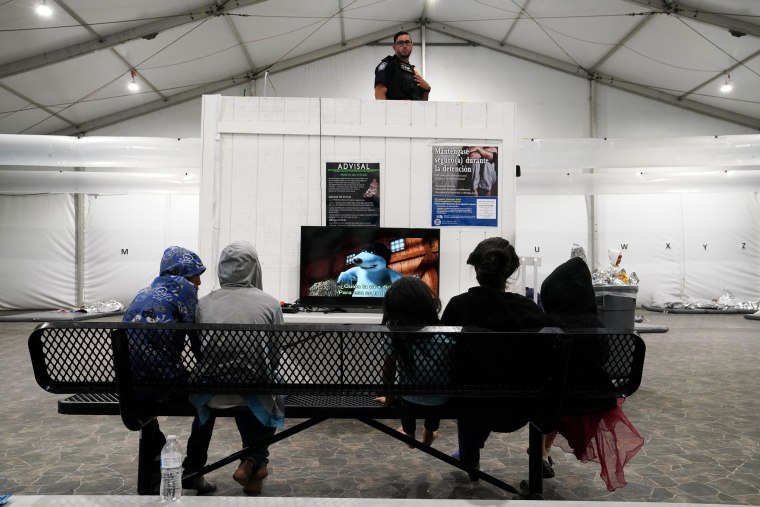Trump and His WH people R Speeding Up Midnight Rules Against New President
 |
| Even Hitler Never Fucked Our Flag |
Since Election Day, the Trump administration has completed dozens of new regulations in a final flurry of rule-making, including restrictions on access to asylum, reduced wages for guest farmworkers and a rejection of stricter limits for soot emissions, despite a growing body of evidence that soot pollution is contributing to premature death.
The White House has made a concerted push to finish new rules before President-elect Joe Biden’s inauguration, despite President Donald Trump’s ongoing refusal to accept the election results. Once rules are finalized and take effect, undoing them is usually a time-consuming and labor-intensive process.
The recent bout of “midnight rule-making” — a practice common to administrations of both parties — includes contentious proposals that Biden is likely to oppose. The asylum change, for example, adds sweeping new restrictions that elevate the threshold for migrants who claim persecution in their own countries to an “extreme and severe nature of harm” and make it easier for immigration judges to determine that such claims are “frivolous” and to dismiss asylum applications without a hearing.
The Trump administration said that the new rule, finalized on Dec. 16, would allow the federal government “to more effectively separate baseless claims from meritorious ones,” according to a statement, thereby better securing the country’s borders.
The administration also completed a separate rule that shortens the deadline for filing asylum applications and gives immigration judges greater leeway to reject evidence they deem not credible.
Immigrant advocates said the new rules — both scheduled to take effect before Biden’s inauguration — will have a devastating impact on asylum-seekers from around the world, especially those already in the U.S. and fighting to stay.
“It means that many people fleeing violence and persecution will not be able to actually apply for asylum,” Lindsay M. Harris, an associate law professor at the University of the District of Columbia, said. “It will be especially challenging for asylum-seekers who are in detention, given the very low levels of legal representation in detention.”

Biden has vowed to “end Trump’s detrimental asylum policies.” But unwinding many of these restrictions could take months, and possibly years, as the new administration must go through the same lengthy rule-making process to undo finalized rules, unless a court strikes them down.
By contrast, rules that haven’t been finalized or taken effect can be suspended by an incoming president. On Wednesday, incoming White House Press Secretary Jen Psaki told reporters that once Biden is sworn in, he'll issue a memo freezing any rules that haven't taken effect, as previous presidents have done. And executive orders can be reversed with the stroke of a pen.
Biden’s transition team did not respond to a request for comment.
Since Election Day, the Trump administration has issued about three to four times as many new regulations as it did during other periods of Trump’s presidency — similar to the rush of midnight rule-making under previous presidents, according to an analysis by Daniel Perez, senior policy analyst at George Washington University’s Regulatory Studies Center. And there could be a final push in January to complete rules before Biden’s inauguration.
“As a general rule, it takes at least as much process to undo or modify a rule as it does to put the rule in place,” said Jonathan H. Adler, a professor and an administrative law expert at Case Western Reserve University School of Law. “The Trump administration is magnifying that challenge for the Biden administration.”
Soot rule sped up
With the deadline approaching, the Trump administration has also taken measures to speed up the rule-making process and have rules take effect more quickly. While a proposed rule is under White House review — required for rules that have a major effect on the economy, environment or public health, among other areas — administration officials often hold stakeholder meetings with outside groups to hear their feedback on the changes under consideration, though they are not required to do so.
The National Resources Defense Council, an environmental advocacy organization, was among the groups scheduled to meet with the White House in December to discuss its concerns about the proposed rule for regulating soot, a carbon byproduct mainly produced by power plants, industrial processes and gas-powered vehicles. When soot enters the lungs and bloodstream, it can resultin cancer, heart disease and other serious health problems.
The Environmental Protection Agency had proposed maintaining the existing soot standards for the next five years, despite recommendations from career EPA scientists to tighten them, which the scientists said would save thousands of lives per year. New research has also linked the pollutant to increased risk of death from Covid-19.
“Rules like this impact all of us and the air we breathe,” said Emily Davis, a senior attorney for the National Resources Defense Council. “They should have as large and robust a comment period as possible.”

In the weeks leading up to the final rule, the White House held 16 meetings with industry, environmental and public health groups to discuss it, according to federal records. But in early December, the White House decided to forgo the rest of its meetings — including the one with the National Resources Defense Council — and completed the rule ahead of schedule, which the administration described as standard protocol.
The EPA also invoked a rarely used exemption to have the rule take effect immediately. While most rules require a 30-day wait or longer to take effect, the EPA made the changes effective immediately by asserting the need to provide “regulatory certainty as soon as possible.” The EPA used the same exemption to usher in another major rule that would limit its consideration of the benefits of future air pollution rules, as well as the first greenhouse gas standard for airplanes. Rules that have already taken effect are generally harder to undo.
“It’s definitely unusual,” Adler said. “The Trump administration’s view is, ‘Let’s get as much done as possible and try to lock it in.’” The Trump administration, industry lobbyists and allies in major coal-producing states like West Virginia celebrated the completed rule as a triumph, noting that soot levels in the U.S. have decreased 39 percent since 2000. “We need to continue to support policies that keep our air clean, while protecting the job producers in our state,” Patrick Morrisey, West Virginia’s attorney general, said in a statement.
The EPA said in a statement that the new soot rule was sufficiently protective of public health, coming after “careful review and consideration of the most recent available scientific evidence,” as well as more than 60,000 public comments on the draft rule.
Davis, however, said the White House review process shouldn’t have been cut short, given the magnitude of the rule. “Soot pollution kills,” she said. “Every day we live with outdated and insufficient standards.”
Legal challenges
Even if they make it over the finish line, the most controversial rules are likely to face legal challenges, and courts have already blocked some from taking effect. That could make it easier for the incoming administration to undo the rules they oppose, by settling the court cases rather than fighting to keep them in place.
Shortly before Christmas, a federal court issued an injunction that stopped a new Trump rule from freezing the minimum wage for guest farmworkers for the next two years and creating a new standard that would reduce their wages by an estimated $1.68 billion over 10 years, according to the published rule.
A temporary visa program known as H-2A has exploded in growth in recent years as the number of available farmworkers has dwindled, but it has come under fire for facilitating the mistreatment of workers, who have little leverage and recourse once they arrive in the U.S. Industry groups, however, have defended their labor practices and criticized the high labor costs as a major impediment for struggling American farmers.
A few days after the November election, the administration published a rule that would freeze H-2A minimum wages through 2022 and then establish a new formula for calculating wages for guest farmworkers based on the compensation trends from the previous year.
“It is a victory for farmers, agricultural workers, and the American people, who rely on a vibrant agricultural sector to supply food for our families,” John Pallasch, an assistant secretary of labor, said in a statement. Industry groups also praised the move for reducing labor costs for employers.
Advocates for farmworkers have decried the new rule for impoverishing vulnerable H-2A workers who are already earning low wages, as well as domestic farmworkers who will struggle to compete with cheap foreign labor. But their court case is based on claims that the Trump administration has cut corners in its final rule.
In issuing its injunction last week, a federal court in California saidthat the Trump administration’s rule “intentionally depresses and stagnates the wages” of guestworkers without providing adequate reasoning for doing so — a procedural requirement under the Administrative Procedure Act to prevent “arbitrary and capricious” rule-making.
The Labor Department deferred to the Justice Department, which did not immediately respond to a request for comment.
As the clock ticks down, the administration will need to take care to avoid further court challenges, said Susan Dudley, who led the White House’s office of regulatory affairs under President George W. Bush and now directs the Regulatory Studies Center.
“All administrations face pressure to complete actions before their time runs out,” she said. “But rushed regulations that take procedural shortcuts or fail to provide compelling justification for the selected approach do risk being overturned.”
Comments